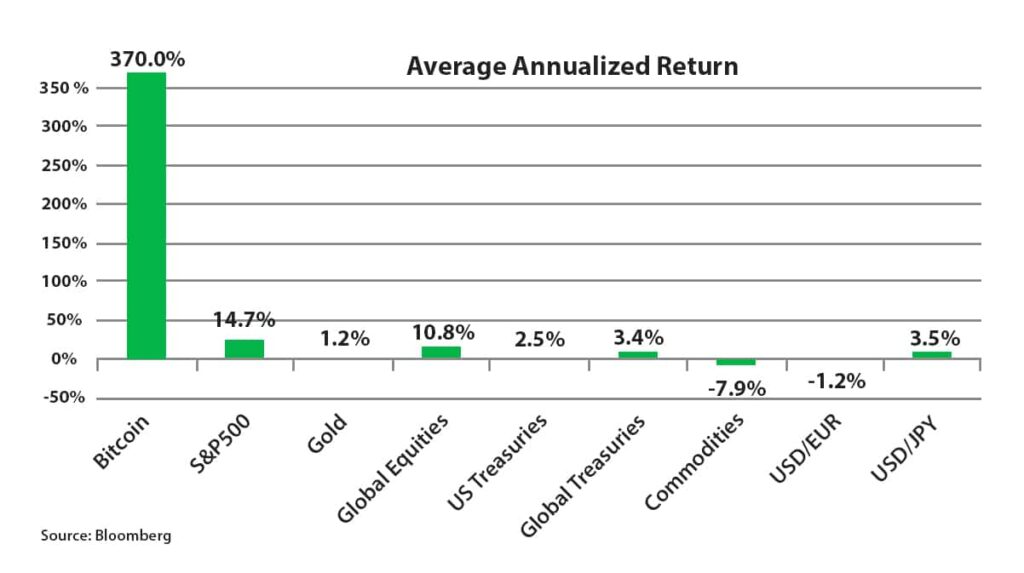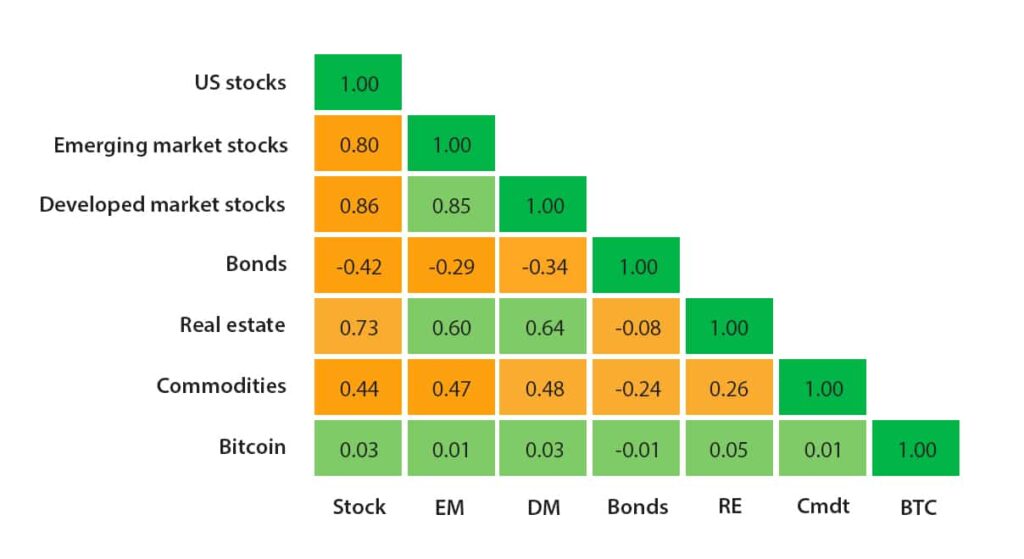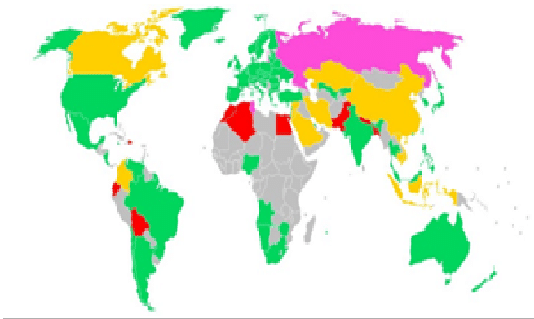Bitcoin – Your Search for a Multi-Bagger ends Here: Cryptocurrency

Bitcoin – Search for a Multi-Bagger – Cryptocurrency
Imagine an INR 800 Crore rupee pizza order.
On the evening of 22 May 2010, a gentleman called Laszlo Hanyecz was feeling hungry and decided to have some pizza. But here’s the twist – he wanted the pizza in exchange for bitcoins. A full 10,000 of them. He put up this offer on a bitcoin forum and this was accepted by a British man who honoured this arrangement and ordered them for Laszlo in exchange for this mysterious internet money. At the time, these bitcoins were worth $41 – today, these are worth a whopping INR 796,80,18,955 (a growth of 2.5 million times!). This day is known as Bitcoin Pizza Day.
And yes, it is a true story. Now that I have your attention, I want to explain to you in a little more detail what the above transaction means. The ideal state of a truly capitalist society should be a deep, liquid, and omniscient peer-to-peer network (imagine BitTorrent). Such an economic system ensures that market participants can directly trade with each other, product-for-product. Practically, though, such an economy is not all perfect; a typical shortcoming of the traditional peer-to-peer economy has been the absence of a common medium of exchange. Today, this common medium of exchange is the Indian Rupee, the United States Dollar, the Japanese Yen, Euros, etc. However, there are limitations to these media of exchange – these are deeply regulated by nation-states, their supplies are slave to central bank policies and there is no complete independence to ownership by the bearer. Theoretically, in an ideal capitalist society, Indian Rupees, Yes, Euros and the Dollar would have already become obsolete.
However, every problem is worth solving. So is this. Allow me to introduce you to Bitcoin -the world’s first purely digital, decentralized, untameable, open-source software-driven asset. Paul Graham calls it a paradigm shift; Marc Andreessen believes Bitcoin is as big of a technological breakthrough as PCs and the Internet; Ben Bernanke said virtual currencies may hold long-term promise; Google is interested in Bitcoin; Twitter is actively exploring it and Apple is afraid of it.
In short, Bitcoin is something you should be paying attention to.
What is Bitcoin?
Bitcoin (₿) is a digital asset invented in 2008 by an unknown person or group of persons using the name Satoshi Nakamoto. Bitcoin’s goal was to create an asset with no central authority and outside the incumbent financial system. It was born out of a deep-seated frustration of the 2008 global financial crisis and the ensuing gross currency mismanagement of central banks around the world.
Just like no single person or organization definitively owns email technology, nobody owns the Bitcoin network. The Bitcoin network is as close to a perfect example of a truly democratized currency & wealth system as possible – this is why we’ve seen a recent surge in the number of Bitcoin users in generally more oppressive regimes like Venezuela, Iran, Syria, China etc. In fact, the most oppressed sect of the citizenry in these countries often resorts to Bitcoin as the only real-world alternative medium to store and transact their wealth because, as is evident, censorship and control of a medium of exchange is perhaps the best way to wage war against an individual, a group of individuals or a community as a whole.
The real question to ask is perhaps – why isn’t a currency and wealth system truly independent of a Central Government or Central Bank? An individual’s hard labour, stored in his wealth, should be accessible to his sovereign self only. If you’re in agreement with me until here then Bitcoin should assume natural importance for you.
What Makes Bitcoin Appealing?
Bitcoin has 2 major appealing factors that no other asset in the world offers. A finite, known, scheduled supply and the absence of any central authority. I encourage you to think of any other asset in the world that offers these to you cumulatively – a true store of value must be both scarce and censorship-resistant. The only other asset that ‘somewhat’ stands this test is Gold, which obviously has a far greater tenure than Bitcoin. Gold was first used 2,000 years ago whereas Bitcoin’s genesis dates back to January 2009 and yet, Bitcoin has already captured 1.5% of Gold’s market cap in this short time span.
Why not just Gold then? In fact, Gold and Bitcoin both have some common properties that make them attractive stores of value like finite supply (albeit unknown for Gold while Bitcoin is pegged at a full 21 million in supply), durability and fungibility. However, what makes Bitcoin far more appealing is its dual nature as a store of value where it competes with Gold and its convenient ability to morph into a currency system where Bitcoin is portable, easily divisible and transactable. In fact, in addition to these attributes where Bitcoin clearly outcompetes Gold, Bitcoin is also completely sovereign and “smart” i.e. programmable.
Contrary to conventional wisdom, Bitcoin also puts to rest the argument that a store of wealth and a currency system needs to be independent of each other – in fact, why do currency systems need to be inflationary? A true hybrid of currency and wealth, in fact, must be deflationary (think of Gold). The Central Banks will tell you that inflation is an absolute necessity; an argument on that will warrant a separate paper of its own (which scholars have written) but the ultimate goal of inflation is to inflate a nation’s debt away. Inflation is in fact very unfair to savers and forces redistribution of a saver’s hard-earned wealth into other asset classes to achieve positive real returns while assuming above-zero risk.
The built-in deflationary economics of Bitcoin ensures that savers get the benefit of holding an asset that is not a slave to any Central Authority’s manipulation by way of debasement.
Bitcoin is the only asset in the world where the supply is fixed, known and where no central authority can ever control, print it, or seize it. Bitcoin is the only asset class that ensures complete sovereignty of your wealth; it is for this reason that perhaps it is often referred to as “Digital Gold”.
Bitcoin as an Investment Asset
In the investment world, the only metric that matters at the end of the day is your return on investment. Your returns are perhaps the ultimate validation of your thesis.
From a pure return perspective, Bitcoin is not only the best-performing asset class of this past decade but is also the best-performing asset class in recorded human history – and that too by a huge margin. A key reason for that remains its relatively massive widespread adoption as an exchange asset in such a short span of time.
The Modern Portfolio Theory stresses that Investors must include uncorrelated assets in their portfolio to maximize returns while minimizing risk i.e. a well-diversified portfolio. Correlation between assets, in simple terms, is essentially the way assets will react in certain situations. For example, in the case of a geopolitical crisis, high-risk assets like equities, alternative investments, etc tend to fall while bonds and fixed-income instruments tend to rise as market participants rush to safe-haven assets. One such key attribute of Bitcoin is its seemingly absent correlation to other asset classes.
In essence, between traditional asset classes like Stocks, Bonds, Real Estate, and Commodities, certain patterns can be seen in their performances over the years – these patterns make such assets correlated to each other. What makes Bitcoin unique is its non-correlation with any other asset class. This absence of correlation makes Bitcoin a perfect asset for portfolio diversification.
| Portfolio | 2016 | 2017 | 2018 | Q2-2019 | |
| BlackRock Multi-Asset Income | 9.83% | 10.95% | -4.78% | 10.19% | |
| with 1% BTC | 10.78% | 14.68% | -5.63% | 11.77% | |
| with 5% BTC | 14.61% | 31.35% | -7.92% | 16.91% | |
| Vanguard Managed Payout Fund | 7.55% | 13.28% | -5.65% | 9.63% | |
| with 1% BTC | 8.49% | 17.12% | -6.45% | 11.13% | |
| with 5% BTC | 12.28% | 33.81% | -9.58% | 17.37% |
Virtues aside, let’s put the Bitcoin thesis to the test –the table on the right is a simulated table of returns for 2 famous global funds with returns re-calibrated assuming a 1% and 5% allocation to Bitcoin respectively. This shows that Bitcoin, as a part of the multi-asset portfolio, despite its high volatility provides high diversification benefits for investors irrespective of the asset class they have invested in. A simple 1% allocation to Bitcoin in a fund has outsized effects on the portfolio’s return.
Perhaps, let’s come closer to home: assuming an Investor allocated 0%, 1%, and 5% of his initial corpus into Bitcoin on 20 September 2015 into a well-diversified portfolio, his returns as on 20 September 2020 would have been amplified as follows (I use 20 September since this is the day I am writing this article ensuring no bias in the time period selected) :
| Asset | Weightage | Returns | Weightage | Returns | Weightage | Returns |
| Nifty | 40% | 7.59% | 40% | 7.59% | 39% | 7.59% |
| S&P BSE MidCap | 15% | 7.06% | 15% | 7.06% | 14% | 7.06% |
| S&P BSE SmallCap | 10% | 6.94% | 10% | 6.94% | 9% | 6.94% |
| OCILAll Sovereign Bond TRI | 25% | 9.70% | 25% | 9.70% | 24% | 9.70% |
| Gold | 10% | 11.44% | 9% | 11.44% | 9% | 11.44% |
| Bitcoin | 0% | 0 | 1% | 116.18% | 5% | 116.18% |
| Total | 100% | 8.40% | 100% | 14.32% | 100% | 30.51% |
The diversification benefits of holding Bitcoin are obvious – the absence of correlation to other asset classes and its store of wealth attributes make it, quite possibly, the world’s best asymmetric investment bet.
Bitcoin Adoption & Regulation
Bitcoin is rapidly gaining recognition as an appealing financial asset. As the Bitcoin community and user base grow, there is an influx of new participants into the ecosystem who bring with them innovation around exchanges, custodial practices, decentralized finance, etc.
In fact, very recently the NASDAQ-listed listed MicroStrategy announced its adoption of Bitcoin as its primary reserve asset and bought Bitcoin worth USD 500 million. Quote from CEO:
“This investment reflects our belief that Bitcoin, as the world’s most widely-adopted cryptocurrency, is a dependable store of value and an attractive investment asset with more long-term appreciation potential than holding cash. Since its inception over a decade ago, Bitcoin has emerged as a significant addition to the global financial system, with characteristics that are useful to both individuals and institutions. MicroStrategy has recognized Bitcoin as a legitimate investment asset that can be superior to cash and accordingly has made Bitcoin the principal holding in its treasury reserve strategy.”
This is perhaps a testament to our hypothesis that Bitcoin uniquely combines the attributes of a currency system with that of a wealth system, which further begs us to think – Bitcoin in many ways replicates a reserve asset and therefore, in theory, can it be an alternative to the US Dollar, Japanese Yen, Euros and other safe-haven currencies? While we are comfortable calling Bitcoin digital gold, perhaps, its unique features also make it a competent digital reserve asset.
As is always the case, technologically advanced countries have been quick to recognize the utility of Bitcoin and have legalized its use. In India, in early 2018 the Reserve Bank of India had initially banned cryptocurrency platforms from using bank accounts (an effective way to curb its use), however, in March 2020, the Supreme Court reversed this ban effectively restoring the right for Indian citizens to trade Bitcoin on exchange platforms. It is worthwhile to note that the Indian Government has never banned the use, exchange or ownership of Bitcoin since its widespread adoption in India. The countries marked in Green (most of mainland Europe, the Americas, and Asia barring China) have taken a positive and adaptive stance towards Bitcoin.
The key worry for most legislators remains Bitcoin’s use for illicit purposes. Bitcoin’s key attributes that make it an attractive asset are in fact the very same features that also make it vulnerable to use by criminal organizations, hackers & terrorists. The use and abuse of every technology & asset are commonplace and hence the requirement of the legislature to regulate these.
The Way Forward…
While I am sure this article will leave you with more questions than answers (perhaps achieving the purpose of arousing your curiosity about Bitcoin), the closing remarks I will leave you with on Bitcoin’s adoption is its evolution from being merely used as a digital collectable asset in the early 2010s by the first wave of adopters cumulatively numbering less than 10,000 individuals to transitioning into an asset class and medium of exchange used by over 50 million individuals and organizations today, to eventually becoming a mainstream asset class recognized for its sovereignty, ease of translatability and independence from any central authority.
The bull case for Bitcoin is evident; in only 10 years, Bitcoin has achieved a market capitalization of USD 200 billion, gained 50m+ users, and is on the path to being adopted by millions more and has achieved all of this without having a board, a CEO or a marketing campaign. Bitcoin is driven solely by its user community and hence, we re-iterate, is perhaps the world’s only democratic asset.
The views and opinions expressed in this article are those of the authors. However, the author does not make any representation or warranty, express or implied, as to the information’s accuracy or completeness, nor does the author recommend that the attached information serves as the basis of any investment decision and it has been provided to you solely for informational purposes only and does not constitute an offer or solicitation of an offer, or any advice or recommendation, to purchase any securities or other financial instruments, and may not be construed as such. You understand that the author is not advising, and will not advise you personally concerning the nature, potential, value, or suitability of any particular security, portfolio of securities, transaction, investment strategy or other matter. Please make sure you understand the regulations before making any investment decisions.











